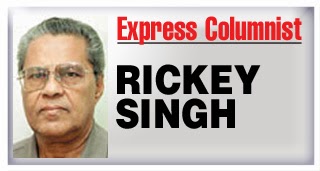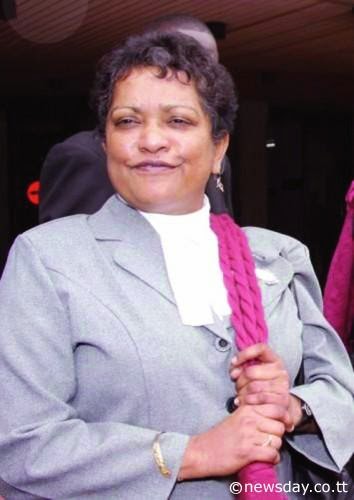The Killing of Dr. Rodney
The killing of Dr Rodney
By Rickey Singh
NOW that Carnival 2014 is over, perhaps the people of Trinidad and Tobago could spare some time to reflect on developments in other Caricom states. One such country is Guyana.
An issue currently in sharp focus in Guyana is a probe into the killing, decades ago, of the internationally famous historian and crusader for freedom and social justice Walter Rodney.
Thirty-three years after this intellectual and writer was killed in a bomb blast in his car on the night of June 13, 1980, in Georgetown, a three-member team of Caribbean legal experts has been established to begin an enquiry into the circumstances surrounding the killing of Dr Rodney.
“Assassination” has always been the unofficial verdict of the Working People’s Alliance (WPA), the party of which Dr Rodney was a founder-leader, as well as from thousands of its supporters across Guyana. They continue to blame the administration of late president Forbes Burnham for the murder.
The challenging task of the commission of enquiry is to unearth the truth—given the deaths of key figures—not the least being that of former sergeant of the Guyana Defence Force (GDF) Gregory Smith, who has been implicated in the killing. An electronics expert, Smith died some years ago in neighbouring French Guiana, to which he escaped and where he had started a new life.
The commission’s members are Barbados’s Sir Richard Cheltenham QC (chairman); Jamaica’s Jacqueline Samuels-Brown QC, and Guyana-born Seenauth Jairam SC, who lives and works in Trinidad and Tobago.
The commissioners were sworn in last week by President Donald Ramotar.
During his many years as Guyanese leader, Forbes Burnham and his People’s National Congress (PNC) never acquiesced to calls for an independent probe into Rodney’s death from various political parties and non-government organisations as well as from the widow and children of the slain historian and charismatic advocate for fundamental human rights and social, economic and political change in Guyana.
When efforts were made, after 1992, with a change in government led by the People’s Progressive Party’s Dr Cheddi Jagan to seek the cooperation of France for Smith’s extradition the French authorities made it clear it was not their policy to extradite an individual back to his country of birth to face a likely death sentence. France is opposed to the death penalty.
Earlier efforts by human rights advocates and organisations to secure the involvement in a probe into Rodney’s death by the Geneva-based International Commission of Jurists (ICJ) had also proved fruitless.
In a telephone interview I had done as a regional correspondent for the Caribbean News Agency (CANA) with Smith while he was still in French Guiana, the fugitive claimed the tragedy “was an accident” and that he was “sorry” but preferred not to say anything further.
It was left to Burnham’s successor, Desmond Hoyte, under pressure from, in particular, Eusi Kwayana, the iconic cultural/political activist and a founding member of the WPA, to initiate a coroner’s inquest.
Eight years after Burnham’s passing, and in the absence of efforts to summon key witnesses and secure forensic evidence, the inquest concluded Rodney’s death had been caused “by accident or misadventure...”
Following the deaths of Burnham and Hoyte, there was the passage of a parliamentary motion calling for an independent probe into Rodney’s death, but only after the opposition PNC and WPA parliamentarians succeeded in getting removal of the word “assassination” with the argument that it would prejudge the circumstances surrounding the historian’s death.
Subsequently, and prior to Guyana’s last general election in November 2011, the WPA surprisingly opted to team up with the PNC— under the leadership of retired Brigadier of the GDF, David Granger—to contest elections under the umbrella of convenience known as APNU—A Partnership for National Unity. In this “partnership” Granger—always a “comrade” of the PNC—and the WPA’s “brother” Rupert Roopnarine, academic and writer, are respectively ALPNU’s chairman and deputy chairman. You think party politics in Guyana easy? We anxiously await the findings of the commission of enquiry.
Dr Rodney was at the height of his popular crusade against what he had described as the “Burnham dictatorship” when he was killed by the bomb planted in a walkie-talkie device and given to his brother, Donald Rodney, by Gregory Smith.
While we await the start of the probe, Rodney’s seminal work, How Europe Underdeveloped Africa, is being translated for publication by China, whose economic and political influence in both Africa and the Caribbean/Latin America region is progressively rising. Stay tuned.
• Rickey Singh is a Guyana-born, Barbados-based noted Caribbean journalist.
(Trinidad Express 3/4/2014)
Please see related article, link below:
Published 7/1/2013 Mahogany Coconut




Comments